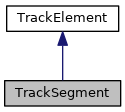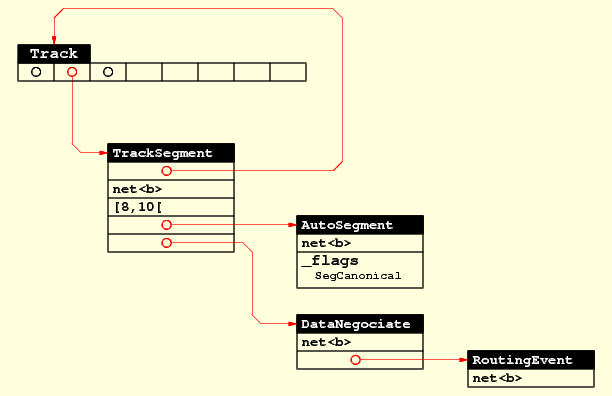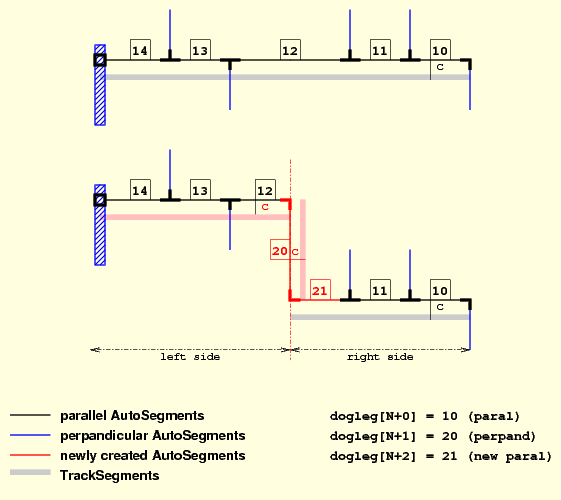Derived Katabatic::AutoSegment for the router. More...

Public Member Functions | |
| virtual bool | isFixed () const |
| virtual bool | isHorizontal () const |
| virtual bool | isVertical () const |
| virtual bool | isLocal () const |
| virtual bool | isGlobal () const |
| virtual bool | isBipoint () const |
| virtual bool | isTerminal () const |
| virtual bool | isStrap () const |
| virtual bool | isSlackened () const |
| virtual bool | isDogleg () const |
| virtual bool | canDogleg () |
| virtual bool | canDogleg (Interval) |
| virtual bool | canDogleg (Katabatic::GCell *, unsigned int flags=0) |
| virtual float | getMaxUnderDensity (unsigned int flags) const |
| virtual unsigned long | getId () const |
| virtual unsigned int | getDirection () const |
| virtual Net * | getNet () const |
| virtual const Layer * | getLayer () const |
| virtual unsigned long | getFreedomDegree () const |
| virtual unsigned int | getDoglegLevel () const |
| virtual TrackElement * | getNext () const |
| virtual TrackElement * | getPrevious () const |
| virtual TrackElement * | getParent () const |
| virtual DbU::Unit | getAxis () const |
| virtual Interval | getFreeInterval () const |
| virtual Interval | getSourceConstraints () const |
| virtual Interval | getTargetConstraints () const |
| virtual DataNegociate * | getDataNegociate (unsigned int flags=KtDataSelf) const |
| virtual TrackElement * | getCanonical (Interval &) |
| virtual size_t | getGCells (Katabatic::GCellVector &) const |
| virtual TrackElement * | getSourceDogleg () |
| virtual TrackElement * | getTargetDogleg () |
| virtual TrackElements | getPerpandiculars () |
| virtual void | setTrack (Track *) |
| virtual void | updateFreedomDegree () |
| virtual void | setDoglegLevel (unsigned int) |
| virtual void | swapTrack (TrackElement *) |
| virtual void | reschedule (unsigned int level) |
| virtual void | detach () |
| virtual void | invalidate () |
| virtual void | revalidate () |
| virtual void | setAxis (DbU::Unit, unsigned int flags) |
| virtual TrackElement * | makeDogleg () |
| virtual TrackElement * | makeDogleg (Interval, unsigned int &flags) |
| virtual void | _postDoglegs (TrackElement *&perpandicular, TrackElement *¶llel) |
| virtual bool | _check () const |
 Public Member Functions inherited from TrackElement Public Member Functions inherited from TrackElement | |
| bool | isCreated () const |
| bool | isInvalidated () const |
| bool | isBlockage () const |
| bool | isLocked () const |
| bool | isRouted () const |
| bool | hasSourceDogleg () const |
| bool | hasTargetDogleg () const |
| bool | canRipple () const |
| Track * | getTrack () const |
| size_t | getIndex () const |
| Box | getBoundingBox () const |
| DbU::Unit | getSourceU () const |
| DbU::Unit | getTargetU () const |
| DbU::Unit | getLength () const |
| Interval | getCanonicalInterval () const |
| void | setFlags (unsigned int) |
| void | unsetFlags (unsigned int) |
| void | setIndex (size_t) |
| virtual void | incOverlapCost (Net *, TrackCost &) const |
| bool | makeDogleg (Katabatic::GCell *) |
Static Public Member Functions | |
| static TrackElement * | create (AutoSegment *, Track *, bool &created) |
 Static Public Member Functions inherited from TrackElement Static Public Member Functions inherited from TrackElement | |
| static SegmentOverlapCostCB * | setOverlapCostCB (SegmentOverlapCostCB *) |
Detailed Description
Derived Katabatic::AutoSegment for the router.

We create one TrackSegment per aligned Katabatic::AutoSegment set, the TrackSegment is associated to the canonical one of the set.
To provide some speedup, the full extention of the aligned segment set is computed once and stored in the TrackSegment itself. The drawback beeing that whenever one segment from the aligned set has it's extention modified, the full extention must be recomputed.
Lazy Revalidate
When the TrackSegment::revalidate() method is called, it only update the cached size of the segment (from the AutoSegment set of aligneds) and the track into which it may be inserted.
The associated DataNegociate and RoutingEvent are not updated.
- The RoutingEvent will be updated when it's key is updated, typically during a requeueing operation and in the SegmentFsm constructor. This should be optimized in the future.
- The DataNegociate is updated only in the SegmentFsm constructor. This is the most costly of the two updates as it perform a perpandicular & parallel connexity exploration.
Dogleg Management
The basic AutoSegment::canDogleg() method is declined in three more dedicated methods in this class:
- TrackSegment::canDogleg(), for locals only, check if a break is possible, never break a segment more than once (to avoid fragmentation).
- TrackSegment::canDogleg(Katabatic::GCell*,unsigned int flags) for globals, check that the segment is breakable in the desired GCell. Never break twice in the first/last GCell (fragmentation limitation), but may reuse an already existing dogleg.
- TrackSegment::canDogleg(Interval), for locals only, direct proxy for the AutoSegment method. Never allow more than one break.
Relationship between AutoSegment and TrackSegment
Figure 2 below, shows an example of dogleg creation:
- At the Katabatic level, AutoSegment
id:12is broken. Thus the creation of AutoSegmentsid:20andid:21. The orignal TrackSegment (canonical AutoSegmentid:10) remains on the right side (target) of the break. - But, because the canonical of the former aligned AutoSegment set
(10,11,12,13,14) was on the right side of the break, the new parallel TrackSegment will be created on theleftside, associated to the newly promoted canonical AutoSegmentid:12.

The TrackSegment::_postDoglegs() method called by all flavors of TrackSegment::makeDogleg() methods is responsible for creating new TrackSegments for the new doglegs (there may be more than one), it also update the dogleg level and source/target dogleg flags.
This section is not finished. I need to review the parent and doglevel numbering management. There seems to be a risk of infinite fragmentation as the numbering of the original segment is not increased, we should create a break counter separate from deepness.
Global, Weak Global and Local Segments
There's a slight semantic change between Katabatic and Kite about what is local and what is local. This is due to how we consider the intermediate status of WeakGlobal.
A WeakGlobal segment is a local segment which is aligned with a global (though a VTee or an HTee contact).
In Katabatic a local segment is one that is not Global, a local segment can be both Local and WeakGlobal.
In Kite a local segment is one that is neither Global or WeakGlobal. The WeakGlobal sides with Global unlike in Katabatic.
Member Function Documentation
◆ create()
|
static |
- Parameters
-
segment The Katabatic AutoSegment to decorate. track A Track into which insert the TrackSegment (may be NULL).created This flag is sets is a new TrackSegment has be created.
- Returns
- A TrackSegment wrapped around an AutoSegment.
Constructor mainly used at loading time to decorate the Katabatic data-base with the router attributes.
Referenced by NegociateWindow::createTrackSegment().
◆ isFixed()
|
virtual |
See also: Katabatic::AutoSegment::isFixed().
Reimplemented from TrackElement.
Referenced by TrackSegment::canDogleg().
◆ isHorizontal()
|
virtual |
See also: Katabatic::AutoSegment::isHorizontal().
Implements TrackElement.
Referenced by TrackSegment::getGCells().
◆ isVertical()
|
virtual |
See also: Katabatic::AutoSegment::isVertical().
Implements TrackElement.
◆ isLocal()
|
virtual |
See also: Katabatic::isLocal().
Reimplemented from TrackElement.
Referenced by TrackSegment::_postDoglegs(), and TrackSegment::canDogleg().
◆ isGlobal()
|
virtual |
See also: Katabatic::AutoSegment::isGlobal().
Reimplemented from TrackElement.
◆ isBipoint()
|
virtual |
See also: Katabatic::AutoSegment::isBipoint().
Reimplemented from TrackElement.
◆ isTerminal()
|
virtual |
See also: Katabatic::AutoSegment::isTerminal().
Reimplemented from TrackElement.
◆ isStrap()
|
virtual |
See also: Katabatic::AutoSegment::isStrap().
Reimplemented from TrackElement.
◆ isSlackened()
|
virtual |
See also: Katabatic::AutoSegment::isSlackened().
Reimplemented from TrackElement.
Referenced by TrackSegment::canDogleg().
◆ isDogleg()
|
virtual |
See also: Katabatic::isDogleg().
Reimplemented from TrackElement.
◆ canDogleg() [1/3]
|
virtual |
See also: AutoSegment::canDogleg(). At Kite level, this variant of the method will apply only on local segments and the segment must not already have a source or target dogleg.
Reimplemented from TrackElement.
◆ canDogleg() [2/3]
|
virtual |
See also: AutoSegment::canDogleg(). At Kite level, this variant of the method will apply only on local segments and the segment must not already have a source or target dogleg.
Reimplemented from TrackElement.
◆ canDogleg() [3/3]
|
virtual |
See also: AutoSegment::canDogleg(). At kite level, this variant of the method is mainly targeted to global segment. For local segment it behave like TrackElement::canDogleg(Interval). For global segment, make the break in the requested GCell doglegGCell. If it's in the first or last GCell and there is already a dogleg, allow to reuse it if flags contains Kite::KtAllowDoglegReuse.
Reimplemented from TrackElement.
◆ getMaxUnderDensity()
|
virtual |
Returns: The maximum density of all the GCells under this element.
Reimplemented from TrackElement.
◆ getId()
|
virtual |
- Returns
- The
Idof the supporting AutoSegment, if there is any. Zero otherwise.
Reimplemented from TrackElement.
Referenced by TrackSegment::detach().
◆ getDirection()
|
virtual |
- Returns
- The direction of the supporting element (should match the preferred direction of the Track).
Implements TrackElement.
Referenced by TrackSegment::getSourceDogleg(), and TrackSegment::getTargetDogleg().
◆ getNet()
|
virtual |
Returns: The Net associated to the element (may be NULL).
Implements TrackElement.
Referenced by TrackSegment::getFreeInterval(), TrackSegment::getNext(), and TrackSegment::getPrevious().
◆ getLayer()
|
virtual |
Returns: The Layer of the element (should match the one of the Track).
Implements TrackElement.
◆ getFreedomDegree()
|
virtual |
Returns: The degree of freedom of the element. It is used as a priority value when sorting TrackElement (in RoutingEvent).
Returns: The degree of freedom of the element. It is used as a priority value when sorting TrackElement (in RoutingEvent).
Currently, it is the slack of the Katabatic::AutoSegment.
Reimplemented from TrackElement.
◆ getDoglegLevel()
|
virtual |
Returns: The deepness of the dogleg.
Reimplemented from TrackElement.
Referenced by TrackSegment::canDogleg().
◆ getNext()
|
virtual |
Returns: The next TrackElement, on the same track and of a different net. See also: Track::getNext().
Reimplemented from TrackElement.
◆ getPrevious()
|
virtual |
Returns: The previous TrackElement, on the same track and of a different net. See also: Track::getPrevious().
Reimplemented from TrackElement.
◆ getParent()
|
virtual |
Returns: The TrackElement from which the dogleg has been created, if any.
Reimplemented from TrackElement.
Referenced by TrackSegment::getDataNegociate().
◆ getAxis()
|
virtual |
Returns: The axis position of the element (must be the same as the Track).
Implements TrackElement.
◆ getFreeInterval()
|
virtual |
Returns: The greatest free interval enclosing this element.
Reimplemented from TrackElement.
◆ getSourceConstraints()
|
virtual |
See also: Katabatic::AutoSegment::getSourceConstraints().
Reimplemented from TrackElement.
◆ getTargetConstraints()
|
virtual |
See also: Katabatic::AutoSegment::getTargetConstraints().
Reimplemented from TrackElement.
◆ getDataNegociate()
|
virtual |
Returns: The additional data-structure supplied by the routing algorithm.
Reimplemented from TrackElement.
Referenced by TrackSegment::_postDoglegs(), and TrackSegment::swapTrack().
◆ getCanonical()
|
virtual |
Inner working still unclear to myself.
Reimplemented from TrackElement.
◆ getGCells()
|
virtual |
Returns: The table of Katabatic::GCell underneath the element whole span.
Reimplemented from TrackElement.
Referenced by TrackSegment::canDogleg().
◆ getSourceDogleg()
|
virtual |
Returns: The source part of the segment from which the dogleg has been created.
Reimplemented from TrackElement.
◆ getTargetDogleg()
|
virtual |
Returns: The target part of the segment from which the dogleg has been created.
Reimplemented from TrackElement.
◆ getPerpandiculars()
|
virtual |
Returns: The collection of all element perpandiculars to this one.
Reimplemented from TrackElement.
◆ setTrack()
|
virtual |
Insert the element into track, also used as an insertion marker.
Reimplemented from TrackElement.
Referenced by TrackSegment::detach(), and TrackSegment::swapTrack().
◆ updateFreedomDegree()
|
virtual |
Update, from the element characteristics, it's degree of freedom.
Reimplemented from TrackElement.
◆ setDoglegLevel()
|
virtual |
Sets the level of dogleg of the element.
Reimplemented from TrackElement.
◆ swapTrack()
|
virtual |
Swap the tracks of this and other.
Reimplemented from TrackElement.
◆ reschedule()
|
virtual |
If the TrackElement has already an event scheduled, change the level of this event, otherwise create a new event.
See also: NegotiateWindow::rescheduleEvent().
Reimplemented from TrackElement.
Referenced by TrackSegment::_postDoglegs().
◆ detach()
|
virtual |
Remove the link from the TrackElement to it's owning Track, marking it for removal. The removal from the Track's vector is managed by the Track itself during the Session revalidation stage.
Reimplemented from TrackElement.
◆ invalidate()
|
virtual |
See also: AutoSegment::invalidate().
Reimplemented from TrackElement.
Referenced by TrackSegment::create(), and TrackSegment::setAxis().
◆ revalidate()
|
virtual |
Actualize the TrackSegment characteristics from the supporting elements (set of AutoSegment).
This method do not update the DataNegociate or the RoutingEvent. This is a lazy update delayed until the constructor of SegmentFsm is called. (see Lazy Revalidate).
Reimplemented from TrackElement.
◆ setAxis()
|
virtual |
Sets the axis of the TrackElement.
Reimplemented from TrackElement.
◆ makeDogleg() [1/2]
|
virtual |
Create a dogleg on the source end of the TrackSegment. Put the dogleg axis on the source To be further reviewed.
See also: Dogleg management.
Post-processing done by TrackSegment::_postDoglegs().
Reimplemented from TrackElement.
◆ makeDogleg() [2/2]
|
virtual |
See also: AutoSegment::makeDogleg(), Dogleg management, the return flags from this method are returned through the flags variable.
Post-processing done by TrackSegment::_postDoglegs().
Reimplemented from TrackElement.
◆ _postDoglegs()
|
virtual |
Post-process to be called inside the various dogleg creation or slacken methods. Iterate through the newly created AutoSegments to create, for the perpandicular and the new parallel associateds TrackSegments. Also sets the dogleg levels and flags of the newly created elements.
The session dogleg reset is called at the end of this method. The perpandicular and parallel references to pointers contains the newly created segments for the last dogleg. If more than one was created, you cannot access them (the need has not arised yet).
Reimplemented from TrackElement.
Referenced by TrackSegment::makeDogleg().
◆ _check()
|
virtual |
Check the coherency of the element. For a TrackSegment:
- The supporting AutoSegment the canonical one of the set.
- The cached
min&maxvalues are identical to the computed ones.
Returns: true on success.
Reimplemented from TrackElement.
The documentation for this class was generated from the following files:
- TrackSegment.h
- TrackSegment.cpp
- TrackSegment.dox